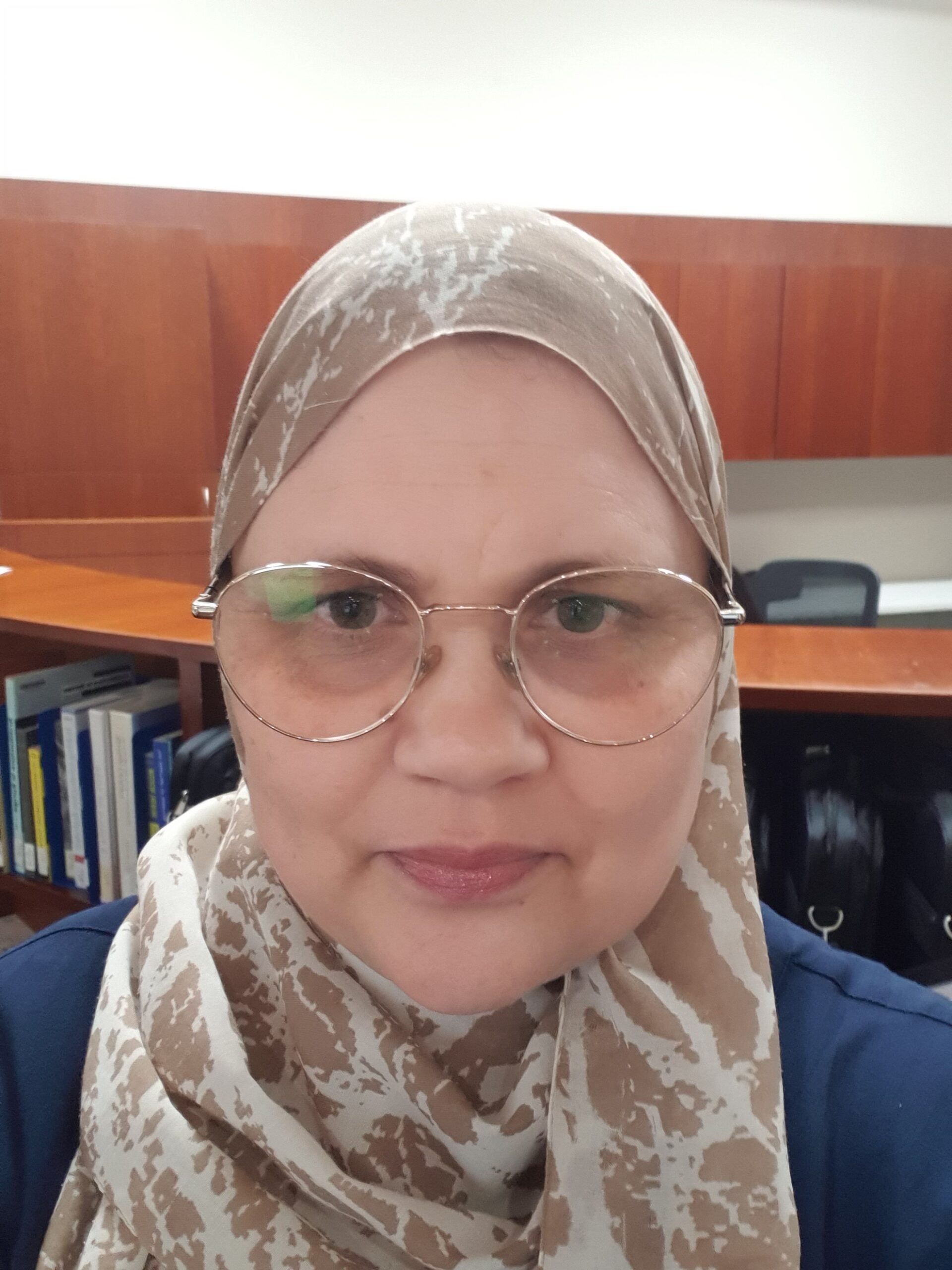New Voices RGU Student Series 2023 – Deidre Mennad
Category: Blog, New Voices, New Voices, RGU Student Series
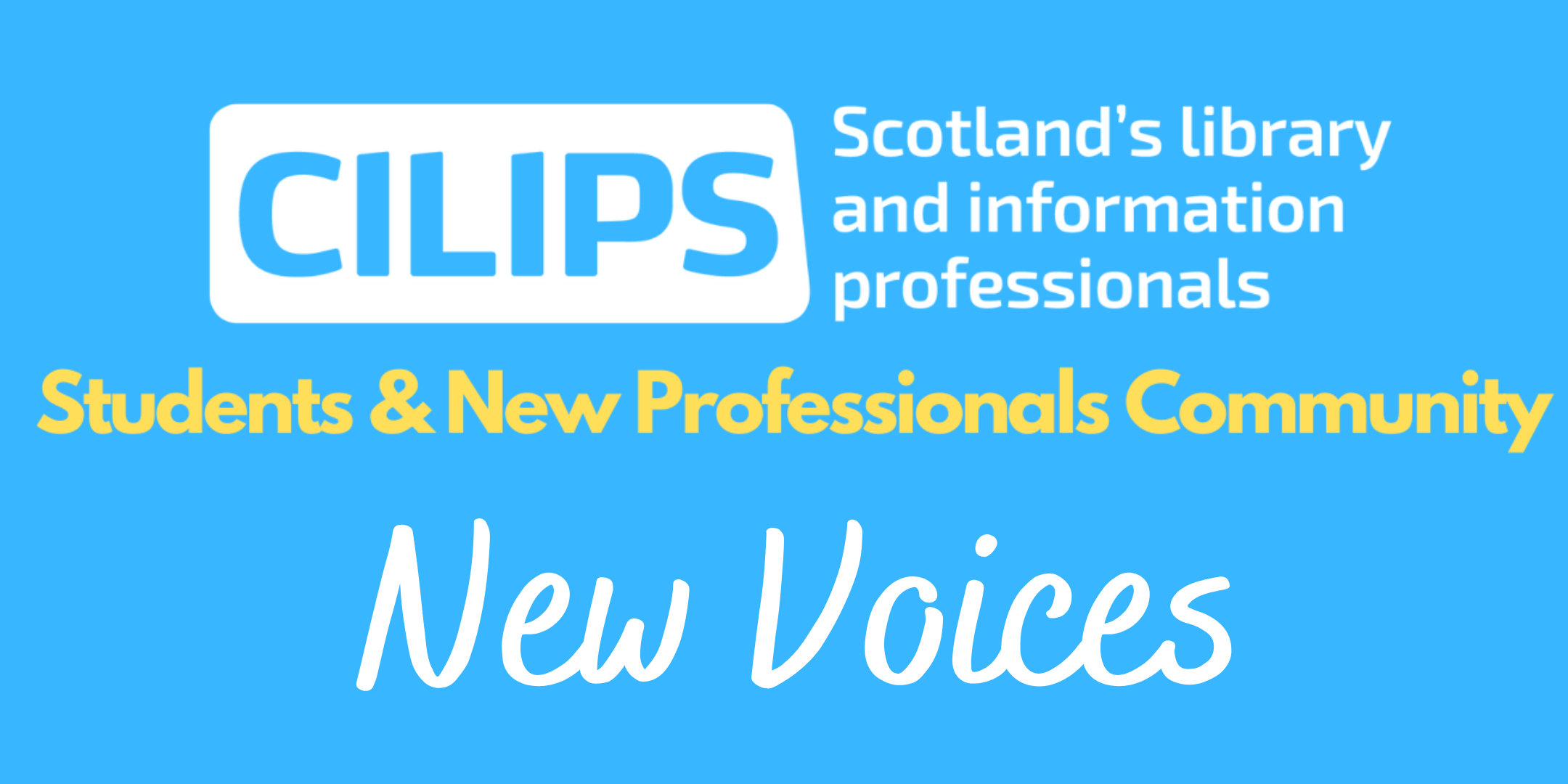
In this 2023 Student Series for the New Voices blog, the CILIPS Students & New Professionals Community will be sharing the views of Robert Gordon University students from the MSc in Information and Library Studies. With special thanks to Dr Konstantina Martzoukou, Teaching Excellence Fellow and Associate Professor, for organising these fantastic contributions. This series will be shared by CILIPS Graduate Trainee Leah Higgins.
This week we are hearing from Deidre Mennad (@deidre_mennad), a student of the RGU MSc in Information and Library Studies from Cape Town, South Africa. Deidre has been living in the United Arab Emirates for the past 16 years and, currently, is working at the American University of Sharjah Library as a part-time library assistant. Her favourite things to do are taking long walks, outings with her kids and, of course, reading, when she has the time.
How information professionals can promote digital and information literacies skills development amongst higher education (HE) students
The Chartered Institute of Library and Information Professionals (CILIP), defines information literacy (IL) as “the ability to think critically and make balanced judgements about any information we find and use” (CILIP 2018 p.3). However, a proliferation of digital information and tools in our current environment has created a need for literacy instruction in this regard which, in turn, prompts us to investigate the convergence of both digital literacy and information literacy instruction. Digital literacy refers to a combination of information technology skills and information literacy (Weber, Hillmert and Rott 2018). The International Federation of Library Associations and Institutions (IFLA) sees it as the ability “to use technology to its fullest effect – efficiently, effectively and ethically” (IFLA 2017). An important objective for information professionals, thus, should be to investigate ways to promote and embed the development of critical thinking, problem solving and life-long learning skills into our lessons as well as developing engaging ways in which to enhance information and digital literacy instruction.
Within an education context, IL requires curriculum integration in order to develop and enhance transferable critical thinking and life-long learning skills (Secker 2018). Løkse et al. (2017), also emphasizes the importance of developing critical thinking skills. Students need to learn the value and importance of these skills and how to apply them. Being information literate should have a positive impact on a student’s problem-solving, decision-making and professional development abilities (Lloyd 2009). In a Higher Education (HE) environment this would ideally help the student to cope with and make sense of course content and related research.
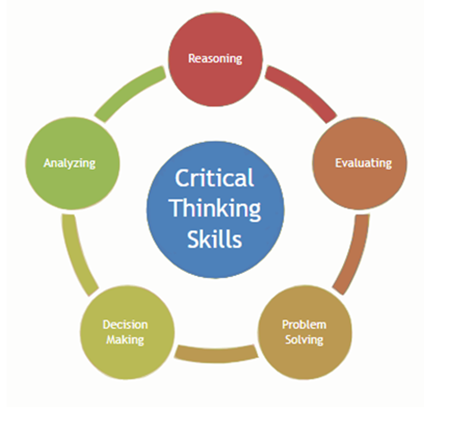 Zenhaus, CC BY-SA 4.0 <https://creativecommons.org/licenses/by-sa/4.0>, via Wikimedia Commons
Zenhaus, CC BY-SA 4.0 <https://creativecommons.org/licenses/by-sa/4.0>, via Wikimedia Commons
When placing IFLA’s statement on digital literacy within a higher education context, this implies a necessity to learn how to use digital tools effectively and appropriately to seek, find, evaluate and use information successfully for the purpose of research and employability. HE institutions hold value to the acquisition of digital literacy competencies as a component of the life-long learning skills of students (Lucas et al. 2022).
According to CILIP (2018 p. 7), information professionals play a “crucial role in advocating, supporting and enabling information literacy.” The Covid 19 epidemic brought along with it the additional need for online or hybrid learning spaces and usage of digital resources. It is evident that the role of the information professional, therefore, is to facilitate the acquisition of both information and digital literacy skills.
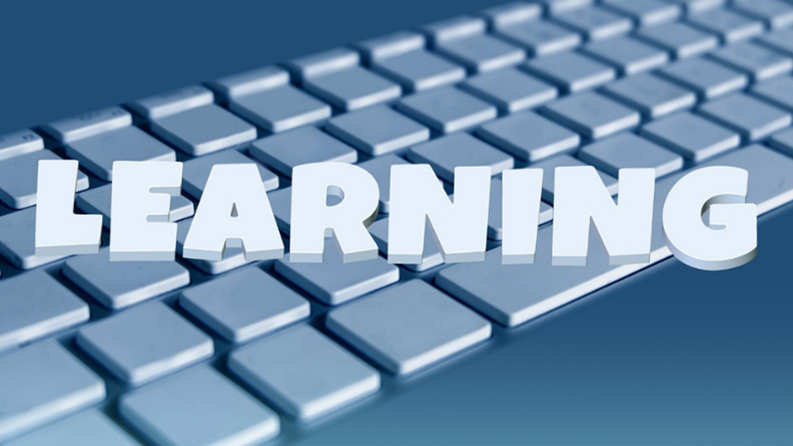 Image by Gerd Altmann from Pixabay
Image by Gerd Altmann from Pixabay
However, recent literature points to a few challenges in delivering IL instruction in higher education institutions:
- Students transitioning from smaller high school libraries to much larger academic libraries lack sufficient IL skills to cope with course related research (Head 2013).
- Students are often wrongfully perceived as “digital natives” arriving to academic expectations which they cannot meet. (Lucas et al. 2022).
- Faculty perceptions of IL often include an indifference to students’ struggle to conduct research (Stebbing et al 2018). Some faculty perceive IL instruction as being a part of academic writing courses, (Cope and Sanabria 2014 in Bury 2016) and others see this as the responsibility of the student.
To meet these challenges head on, we should continuously investigate innovative methodologies and practices for information and digital literacy instruction. Designing orientation sessions in a play and games format, such as the “educational escape room” activity (Wise et al. 2018), engages the critical thinking abilities of students and helps to familiarize them with the library environment. In addition to digital citizenship topics, using digital apps and tools to teach information literacy increases the digital competencies of students. Collaboration with faculty is key in IL instruction (CILIP 2018) and allows us to tailor instruction to course content, which heightens the relevancy of skills lessons for students.
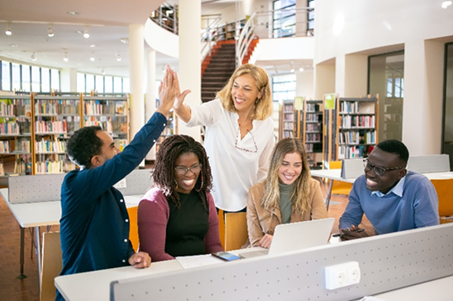 Photo by Kampus Production at www.pexels.com
Photo by Kampus Production at www.pexels.com
As life-long learners ourselves, we need to engage in professional development on a continuous basis (Secker 2018). Membership of professional groups such as CILIP’s Information Literacy Group or the Association of College & Research libraries (ALA), which provide access to training and publications, in-house professional development training for staff as well as keeping up with current literature on new practices in the field, empowers us to support and enhance the teaching of critical information and digital literacy skills to HE students.
Thank you to Deidre for this great evaluation of how Information Professionals can promote digital and information literacy skills development amongst higher Education students.
Stay tuned for more in the 2023 New Voices RGU Student Series coming soon and be sure to check out the rest of CILIPS SNPC’s New Voices blog.
REFERENCES
BURY, S., 2016. Learning from faculty voices on information literacy: opportunities and challenges for undergraduate information literacy education. Reference Services Review, 44(3), pp. 237-252.
CILIP, 2018. ILG launch new CILIP information literacy definition. [online]. London: CILIP. Available from: https://infolit.org.uk/new-il-definition/ [Accessed 14 October 2022].
COPE, J. and SANABRIA, J.E., 2014. Do we speak the same language?: a study of faculty perceptions of information literacy. Portal: Libraries and the Academy, 14(4), pp. 475-501.
ERWIN, K. and MOHAMMED, S., 2022. Digital literacy skills instruction and increased skills proficiency. International Journal of Technology in Education and Science (IJTES), 6(2), pp. 323-332.
HEAD, A., 2013. Learning the ropes: how freshmen conduct course research once they enter college. [online]. New York: Social Science Electronic Publishing (SSRN). Available from: https://papers.ssrn.com/sol3/papers.cfm?abstract_id=2364080 [Accessed 19 November 2022].
IFLA, 2017, IFLA Statement on Digital Literacy. [online]. Den Haag: IFLA. Available from: https://www.ifla.org/publications/node/11586 [Accessed 14 October 2022].
LLOYD, A., 2009. Information literacy landscapes: information literacy in education, workplace and everyday contexts. Witney: Elsevier Science & Technology.
LØKSE, M. et al., 2017. Teaching information literacy in higher education: effective teaching and active learning. Cambridge, MA: Chandos Publishing.
LUCAS, M. et al., 2022. Digital proficiency: sorting real gaps from myths among higher education students. British Journal of Educational Technology, 53(6), pp. 1885-1914.
SANTOS, R., AZEVEDO, J. and PEDRO, L., 2013. Digital divide in higher education students’ digital literacy. In: S. KURBANOĞLU, et al., eds. Worldwide commonalities and challenges in information literacy research and practice. Proceedings of the European Conference on Information Literacy (ECIL). 22-25 October 2013. Cham: Springer International, pp. 178-183.
SECKER, J., 2018. The revised CILIP definition of information literacy. Journal of Information Literacy, 12(1), pp. 156-158.
STEBBING, D. et al., 2019. What academics really think about information literacy. Journal of Information Literacy, 13(1), pp. 21-44.
WEBER, H., HILLMERT, S. and ROTT, K.J., 2018. Can digital information literacy among undergraduates be improved? Evidence from an experimental study. Teaching in Higher Education, 23(8), pp. 909-926.
WISE, H. et al., 2018. Escape the welcome cliché: designing educational escape rooms to enhance students’ learning experience. Journal of Information Literacy, 12(1), pp. 86-96.
